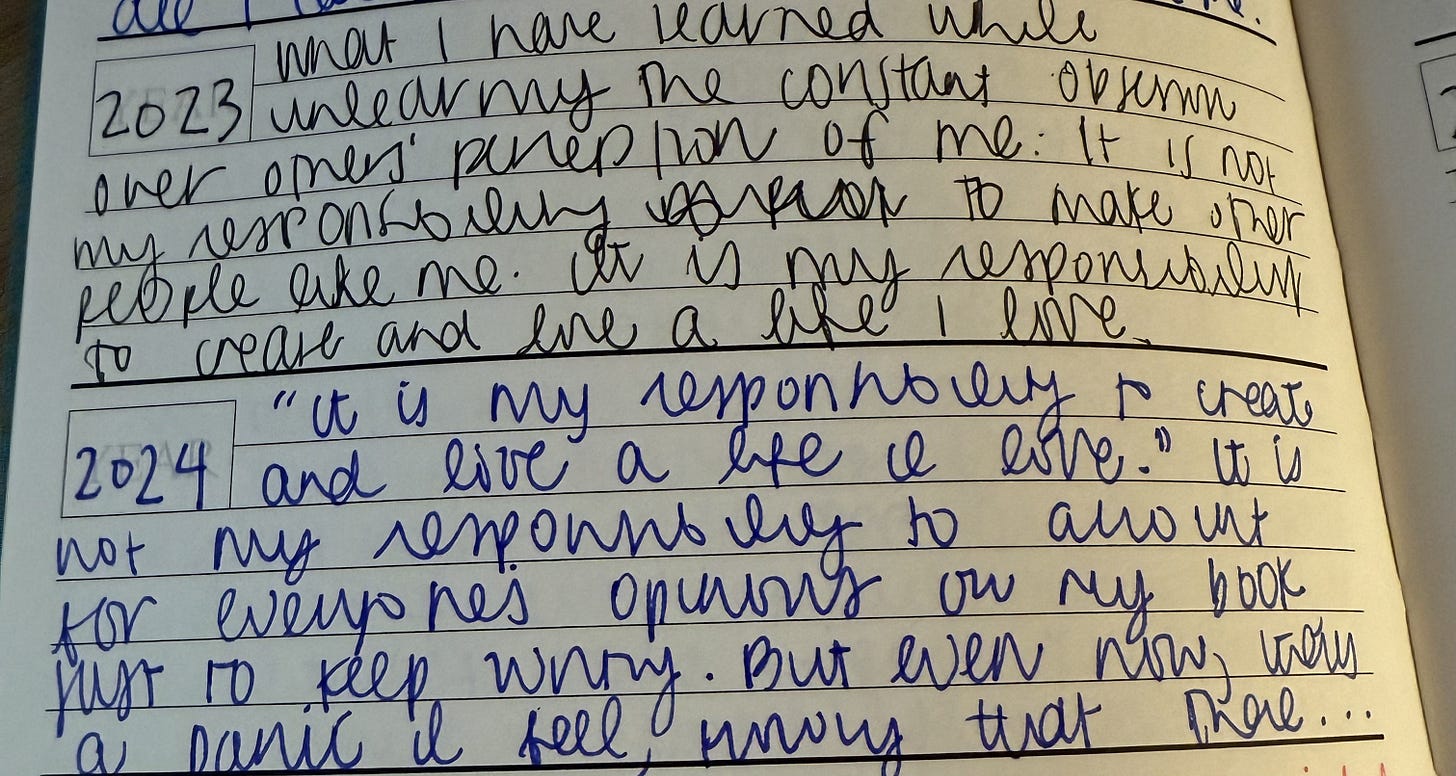Changed my life #2
Two minutes. Every day. Four years.
Five years ago, I started waking up early.
I have never been a morning person, exactly, but at 27 I had been an adult for long enough to know that on the days I woke up later than I would like, I felt rushed, groggy, and unfocused. Alternatively, I knew that on the days I managed to get myself up at 6 a.m. or even earlier, giving myself the time to read or write or exercise before the rest of the world was awake, I felt unstoppable. So, I decided to make myself an early bird.
I started sharing about it on Instagram, as I shared everything at the time, dubbing the goal “Operation Early Bird.” The added accountability didn’t hurt and soon enough, I was waking up at 5:30 or even earlier most mornings, spending an hour reading before I got to my desk to write. It lasted for a few years.
These days, I usually wake up around 7, give or take. I have hope that one day I’ll get back to those glorious, ultra early mornings again. In the meantime, I don’t beat myself up about it, because I’ve tried that path to self-discipline before and spoiler: It does not work. However, there are some habits from that time of my life that have stuck around.
It was because of Operation Early Bird that I fell madly in love with morning reading, so much so that I rarely have a day where I don’t start my morning with a book, no matter what time I wake up, even if it’s just for five minutes. A cup of coffee and a book and a quiet house is divine. There is no one who could convince me otherwise. It is a non-negotiable in my life.
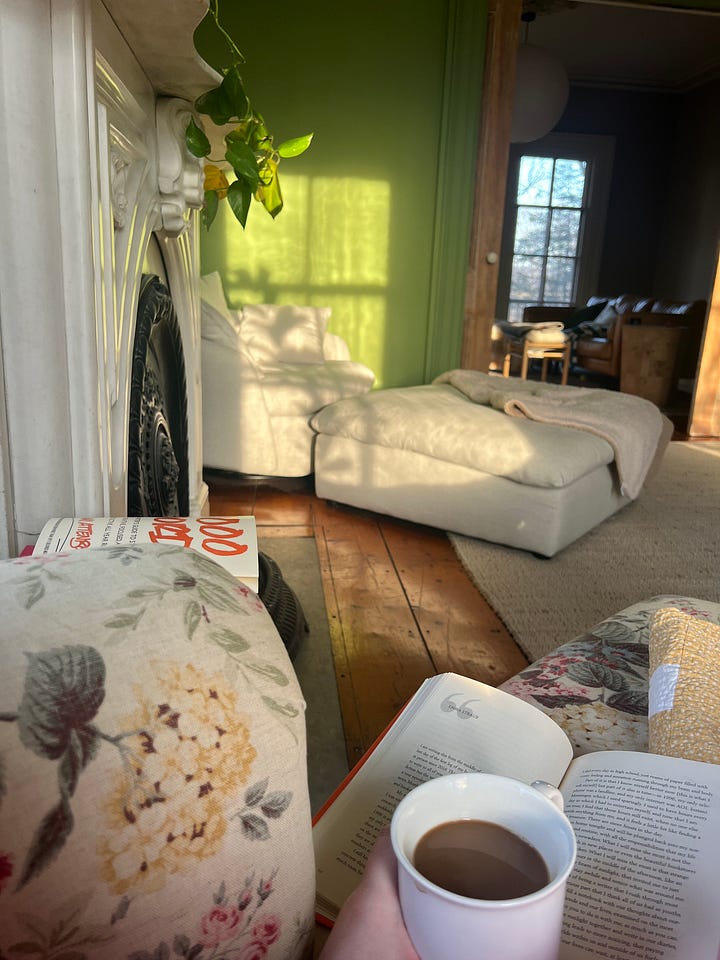
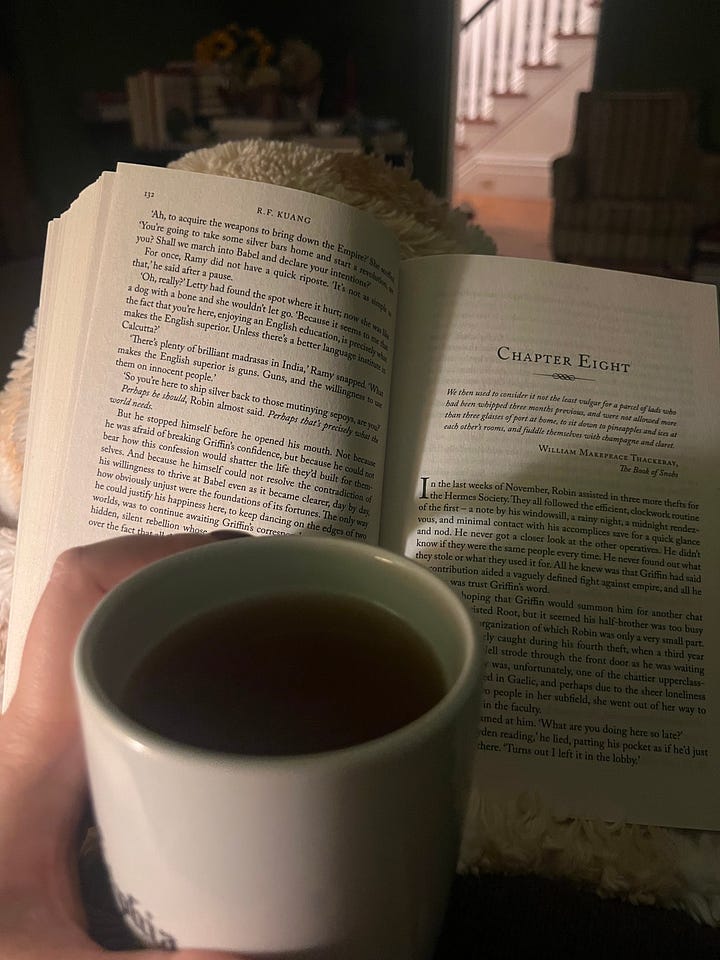
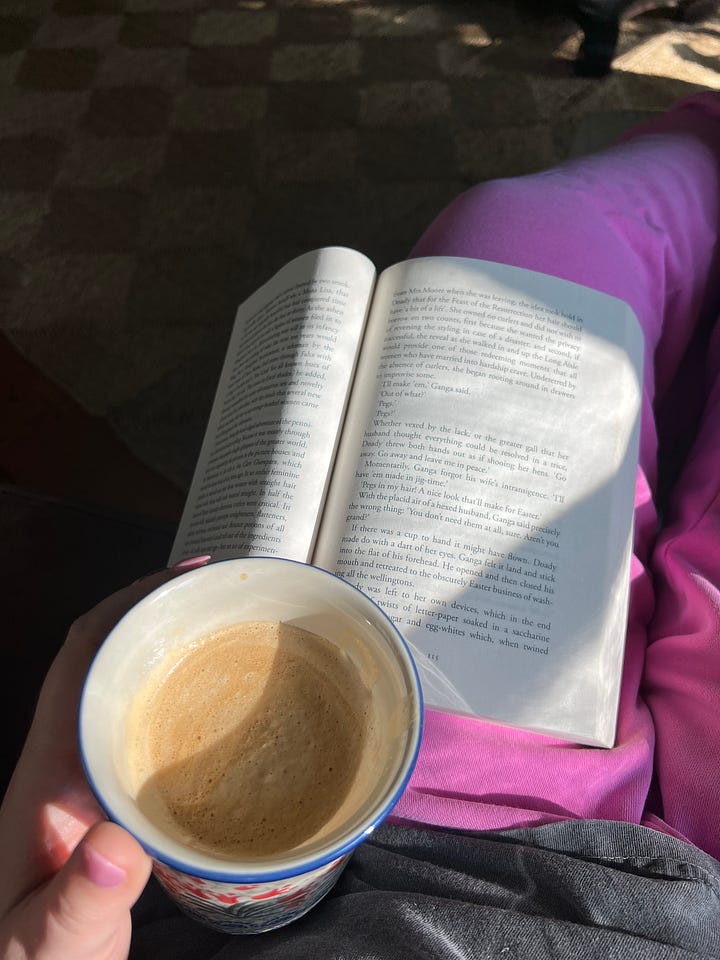
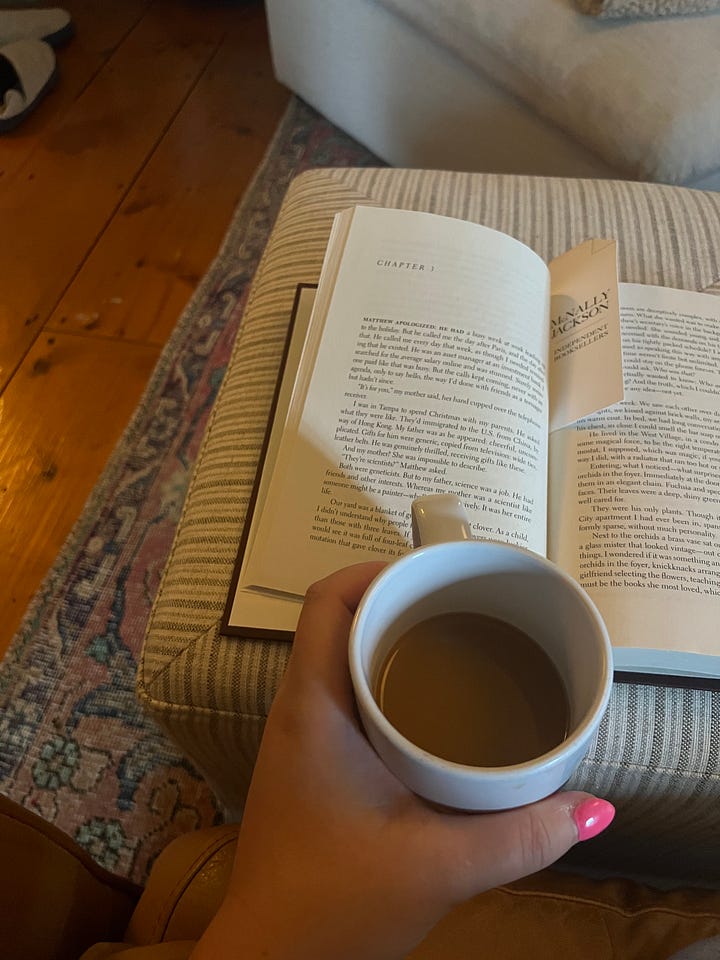
The second habit that stuck is journaling. The way I think about it, the reading makes me curious to write and the journaling makes me comfortable with writing badly. Eventually, the combination brings me to the page, AKA a project that is (hopefully) going to pay my bills. For many years now, before I sit down to do any other work, I journal. I open my Five Year Journal first. Each page is divided into five sections, a few lines for each year. It has taken up 2 minutes of my day, every day, since January 2022. It has changed me for the better.
Take today, for example. It’s a good day. High of 75. I have a clear schedule, a fig-scented candle burning next to me, a cup of decaf English breakfast tea on stand-by. I am making good progress on a fresh draft, the end in sight, with a week-long vacation right around the corner. I want nothing more than a week off, complete with the knowledge that I have no immediate tasks hanging above my head. But I’m unfocused. I can’t stop thinking about reviews.
Generally, I do not read the reviews of my books. I’ve written and talked about why quite a bit. But with my first novel, and now my second, I still haven’t been able to resist during those first few weeks of the book being accessible in the world, those first reactions from early readers. For Such a Bad Influence, I hit my limit after seeing exactly 12 reviews on Goodreads. It was then that I cut myself off cold turkey, and I never looked back. I felt so good not reading the reviews that I told myself I wouldn’t even glance at them for Book 2.
Ha. Ha. Ha.
I have yet to read a truly painful review for Little One, though I know those will come, but I am astounded by how addictive it is to look for them. I don’t want to talk about how many times I refresh Goodreads and NetGalley right now. It’s a scary number. It’s obsessive. Earlier this week, I read a review for Little One on NetGalley that is the type of review authors dreams of. The night before, I had told my therapist: “I just need to see one review where someone gets it. Just one. Then I’ll stop.” I’ll let you guess if that has been the case.

I give myself a lot of grace here. After nearly five years with a project, finally seeing how the world reacts to it is enticing, to say the very least. But I know I will get to see that eventually whether I keep visiting these review websites or not. People will tag me in reviews on Instagram. I will see my average Goodreads rating. I will get emails or DMs. I also know that the compulsive, obsessive feeling of checking the numbers and reviews every day is not something I want in my life. If I was able to check occasionally, that would be a different story. But with this particular thing, I know myself, and I know there is no middle ground. It is a low-grade, constant source of anxiety, a mirage of protection from a fact of art and life that I already know: Some people will love it, and some people will hate it.
I journaled about this for a long time this morning and how I would get myself to stop looking. I kept bargaining with myself: I’ll wait until there are 20 reviews on Goodreads. I’ll wait until I read one that is so harsh it makes me cry. I’ll wait until the shame is insurmountable. I’ll wait until a perfect review. This kind of reasoning should be all I need to know that I should just stop, period, right now. But I’m resisting it. Why is that? This is what I journaled about. And somewhere along the way, I realized that I had been here before.
January 2024. The first advanced copies of SABI were in the world. I knew I would have written in my 5 Year Journal about it. I went and looked.
January 30, 2024: Why is it so hard not to look at reviews? It feels so compulsive, this desire to crosscheck my impostor syndrome against everyone else’s opinions about my work. This is hard.
February 11, 2024: It is my responsibility to create and live a life I love. It is not my responsibility to account for everyone’s opinions of my book just to keep writing. But even now, there’s a panic I feel, knowing that there are reviews I haven’t read and accounted for. It’s as if if I read every bad thing, then I’m in control. I can’t feel shame if I am aware of everything there is to feel shame about. At least it can’t surprise me.
There is a strange comfort in knowing that I have sat in this exact feeling before, of seeing physical proof of it, pen on paper. Eighteen months ago, I sat down at my desk, opened my journal, and felt exactly what I feel today. There is proof of it in my hands.
It soothes me both because I remember what alleviated the feeling (no more obsessive checking), and because I remember that the feeling is survivable. It is intense and overwhelming and real, but it does not mean much. The shame and anxiety doesn’t mean I am a failure or I will never sell another book. The elation from a good review doesn’t mean I am a success or that I will sell another book. Maybe most importantly, knowing every bad and good thing anyone has ever said about my work does not feel as satisfying as believing in my work regardless. It is not even close.
The Five Year Journal works its magic in other ways, too. Just as it comforts me to see what hasn’t changed in my life, it inspires me to see what does.
Here’s a photo of one page out of my journal, as an example.


